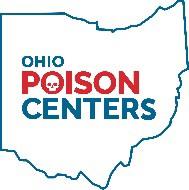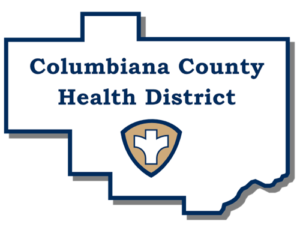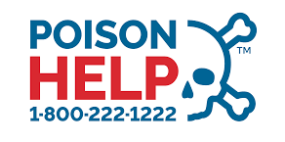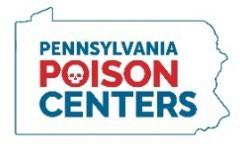Regional Poison Control Clinical Guidance Document
East Palestine Train Derailment
Regional Poison Control Guidance Document
East Palestine Train Derailment
The East Palestine, Ohio train derailment and subsequent toxic chemical spill occurred on February 3, 2023. We are now past the acute management of patients from the event; patient care is now mainly symptomatic and supportive. Chemicals such as vinyl chloride that were released from the derailment do not stay in the body for long, which means that testing from today and going forward will not detect the substance, nor provide information about exposure levels during the incident nor potential health effects.
Agents: Smoke and particulate matter (PM), vinyl chloride, phosgene, hydrogen chloride, 2-butoxyethyl acetate, 2- ethylhexyl acrylate, butyl acrylate, methyl acrylate, polyaromatic hydrocarbons.
- Note, there has been no sampling to confirm the presence of dioxins in the air. However, dioxins may have been produced as a byproduct of combustion. Soil sampling results for dioxins in East Palestine have not been above typical soil levels (background) in residential areas or places where there is an expected exposure pathway.
Mechanism of Action: Clinical effects depend on variables such as duration, intensity, route of exposure, and medical comorbidities. Many of the chemicals act as dermal, respiratory, and/or mucous membrane irritants. Smoke inhalation and chemical exposures may exacerbate underlying respiratory diseases such as asthma or emphysema. Vinyl chloride is a carcinogen, but the cancers it causes (hepatic angiosarcoma and hepatocellular carcinoma) have only been observed in workers who have been chronically exposed to very high concentrations over long periods of time (many decades).
Routes of Exposure: Primary exposures from this incident were most likely dermal and inhalational.
Symptoms: Many early symptoms may have been related to smoke inhalation and stress reactions from being involved in or close to a major environmental disaster. Initial symptoms of vinyl chloride exposure may include non-specific complaints such as skin redness, numbness, and tingling. High concentrations of vinyl chloride and other chemicals, as noted above, may have caused dizziness, lethargy, or respiratory symptoms such as shortness of breath, cough, or wheezing. Since the evacuation order was lifted on February 8, 2023, vinyl chloride has not been found at a level to harm public health.
Management:
- Assess and share exposures assessments with local public health authorities or local poison control center.
- Conduct a general physical examination, with attention to systems related to patient symptoms or concerns.
- Carefully assess the contributions of stress to the patient’s symptoms, whether causative, contributory, associated, or unrelated, and provide helpful resources.
- Use supportive therapy based on the patient’s presenting complaints. For example, inhaled beta agonists may be helpful for shortness of breath and wheezing.
- Based on clinical assessment, consider laboratory testing and imaging studies if indicated. Patients can also be referred to nearest medical toxicology clinic at: Medical Toxicology Outpatient Clinic | UPMC Presbyterian- Pittsburgh.
Testing Considerations: Clinical assessment should guide appropriate workup for providing symptomatic and supportive care. It is reasonable to evaluate measures of end organ effect (liver function testing, kidney function, complete blood count, etc.), particularly if there is a history of significant exposure or if a patient’s symptoms would suggest further workup. Clinicians should exercise best clinical judgment and consult with regional experts for additional medical and patient management advice.
Biomonitoring is when a laboratory tests a sample from the body, usually blood or urine, to look for a chemical or some marker of exposure to that chemical. Many factors influence whether biomonitoring will prove useful for community members facing possible environmental exposures, such as
- route and duration of exposure
- how long the chemicals stay in the body, and
- the ability of the instruments to accurately measure the chemicals.
Biomarkers of exposure will be undetectable or very low at this point and would thus have low utility for clinical management. Specialized toxicological testing for these chemicals in this situation may NOT be clinically useful because of
- lack of sensitivity and specificity,
- long turnaround times,
- difficulty with interpretation,
- lack of population reference values, or
- inability to rule out exposure or guide clinical management.
Vinyl chloride, 2-butoxyethyl acetate and/or their metabolites can be detected in blood or urine, but they have a short half-life and will likely be undetectable after a few days following acute exposure. There is no clinically validated test available for 2-ethylhexyl acrylate, methyl acrylate, or butyl acrylate. Plasma phosgene levels are generally not considered clinically useful. There is no specific diagnostic test available for biological samples of hydrogen chloride.
Additional event-specific resources are available for consultation:
- Poison Control Incident Hotline (Pittsburgh and Ohio): 1-877-603-0170.Press # for PA residents
- Public Health
-
- Columbiana County Health Department 1-330-424-9725
- Ohio Department of Health 1-614-466-3543
- Pennsylvania Department of Health 1-877-724-3258
- Pediatric Environmental Health Specialty Unit (PEHSU)
-
- Ohio / Indiana / Michigan: 1-866-967-7337
- Pennsylvania / West Virginia: 1-610-519-3478
- Centers for Disease Control and Prevention (CDC) 1-770-488-7100
- Environmental Protection Agency (EPA) Hotline: 1-330-775-6517 (MON-FRI 9a-6p, SAT 10a-4p)
- Air monitoring, water sampling, cleanup, and public participation opportunities questions.
- Private well or drinking water testing: 1-330-849-3919
- Family Assistance Center: 1-800-230-7049
- Lodging, food, clothing, gas, childcare, laundry, pet care.
- Division of Animal Health, Ohio Department of Agriculture: 1-614-728-6220
- Call for questions on animal health
- The Medical Toxicology Outpatient Clinic at University of Pittsburgh Medical Center (UPMC) Presbyterian’s Emergency Department 1-412-864-5382 or at: Medical Toxicology Outpatient Clinic | UPMC Presbyterian-Pittsburgh
- Evaluates and treats people with work or home chemical and environmental exposures
Updates to this document will be made as more information becomes available.






